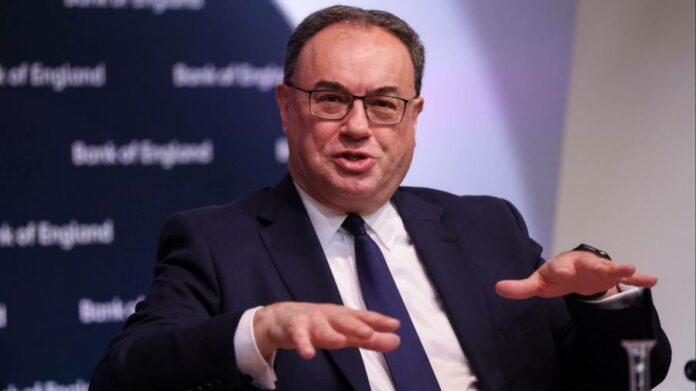The recent fall in energy prices means there is “more optimism” about an “easier path” out of the current inflation crisis, according to the Bank of England governor.
Andrew Bailey said December’s fall in inflation to 10.5 per cent, reported this week, had been expected but was “the beginning of a sign that a corner has been turned”.
The BoE’s most recent forecasts already showed inflation falling rapidly from the spring — an outcome that is almost inevitable because last year’s surge in energy prices following Russia’s invasion of Ukraine is unlikely to be repeated.
But since the central bank issued those projections in November, wholesale gas prices have fallen sharply on the back of an unusually mild winter.
“That isn’t actually yet feeding through [to inflation] . . . but it will do,” Bailey told the Western Mail newspaper. “And that is encouraging . . . It does mean there is more optimism now that we are sort of going to get through the next year with an easier path.”
His comments suggest that if energy prices continue to undershoot market expectations, the BoE may be able to bring an earlier end to its cycle of interest rate rises than would otherwise be possible.
However, Bailey gave no hint any change of course on monetary policy was imminent.
The BoE’s Monetary Policy Committee has raised interest rates nine times since December 2021, with its latest 0.5 percentage point move taking them to 3.5 per cent, the highest since the global financial crisis of 2007-08.
Traders are betting the MPC will continue raising rates to a peak of 4.5 per cent by the summer.
Bailey said he did not endorse the market’s view, but he noted the MPC had openly questioned traders’ judgment in November, when they were pricing in a peak in interest rates above 6 per cent.
More recently, at the December MPC meeting, “we did not include the comment that we made in November about the market being . . . rather out of line”, he added.
Bailey also called attention to pressures in the UK labour market that have been fuelling wage growth and could lead inflation to remain above the BoE target of 2 per cent for longer than elsewhere.
“The labour market remains very competitive and that has been influencing pay negotiations,” he said.
Bailey said the most likely outcome for the UK economy was a long, shallow recession with a pattern of “weak activity over quite a prolonged period”.
UK wholesale gas prices have more than halved since the start of December as unseasonably warm weather over the festive season allowed European countries to generally inject gas into their storage facilities, rather than withdraw it.
This provided traders with greater confidence that Europe would survive the winter without shortages.
However, UK gas prices, which are currently trading at about 150p per therm, are still nearly three times higher than they were at the start of 2021, when they began their upward trajectory even before Russia’s invasion of Ukraine.
The falls in wholesale gas and power prices in recent weeks have pushed analysts to revise their expectations for UK household energy bills this year.
Energy consultancy Cornwall Insight on Thursday wiped hundreds of pounds more from its forecasts for a typical domestic energy bill this year — the second time it has lowered its forecasts since the beginning of January.
Cornwall is now expecting a typical annual bill to be about £3,200 from April, before falling to £2,200 in July, and edging up slightly to £2,240 from October 1.
In November, before the fall in wholesale prices, Cornwall had been forecasting a typical annual bill of £3,921 from April, about £3,350 in July and £3,370 from October 1.






